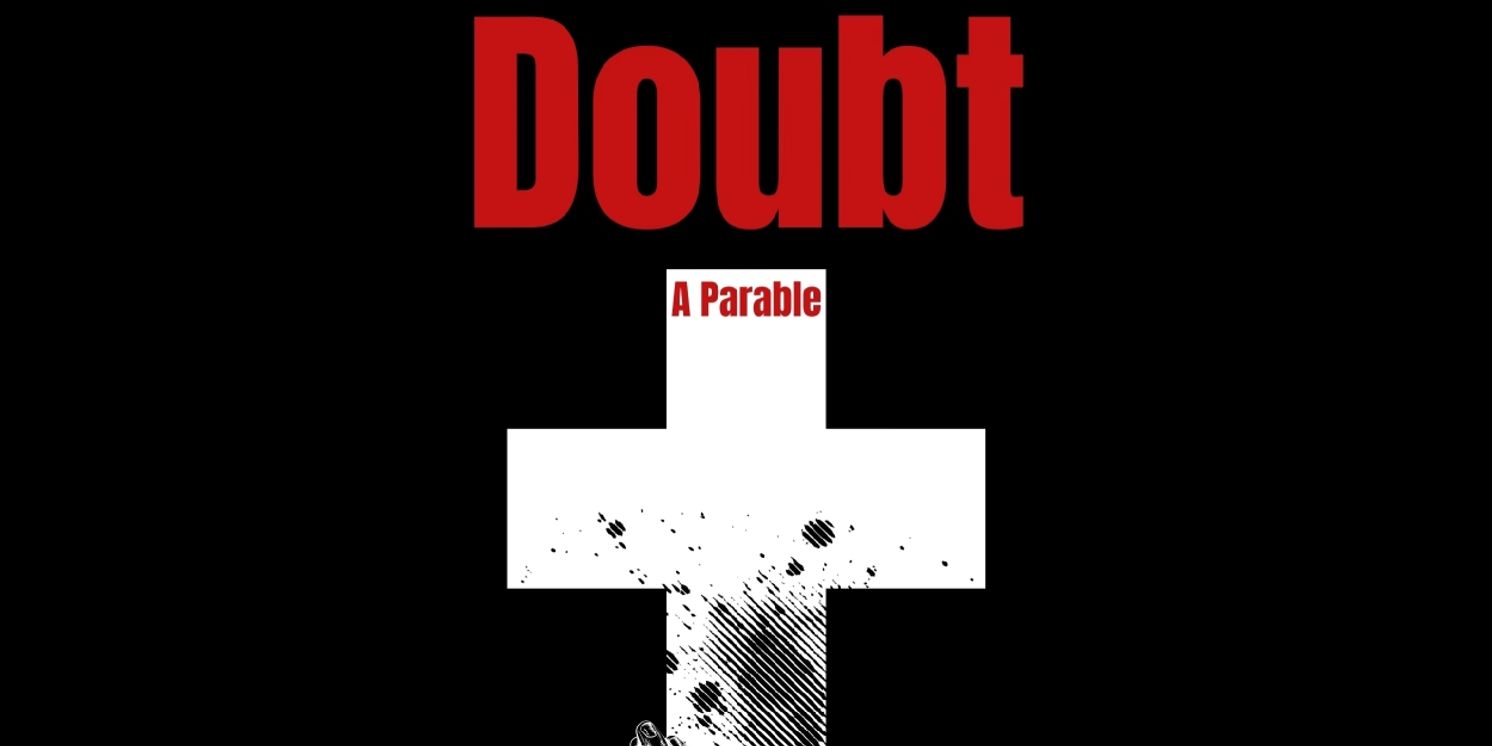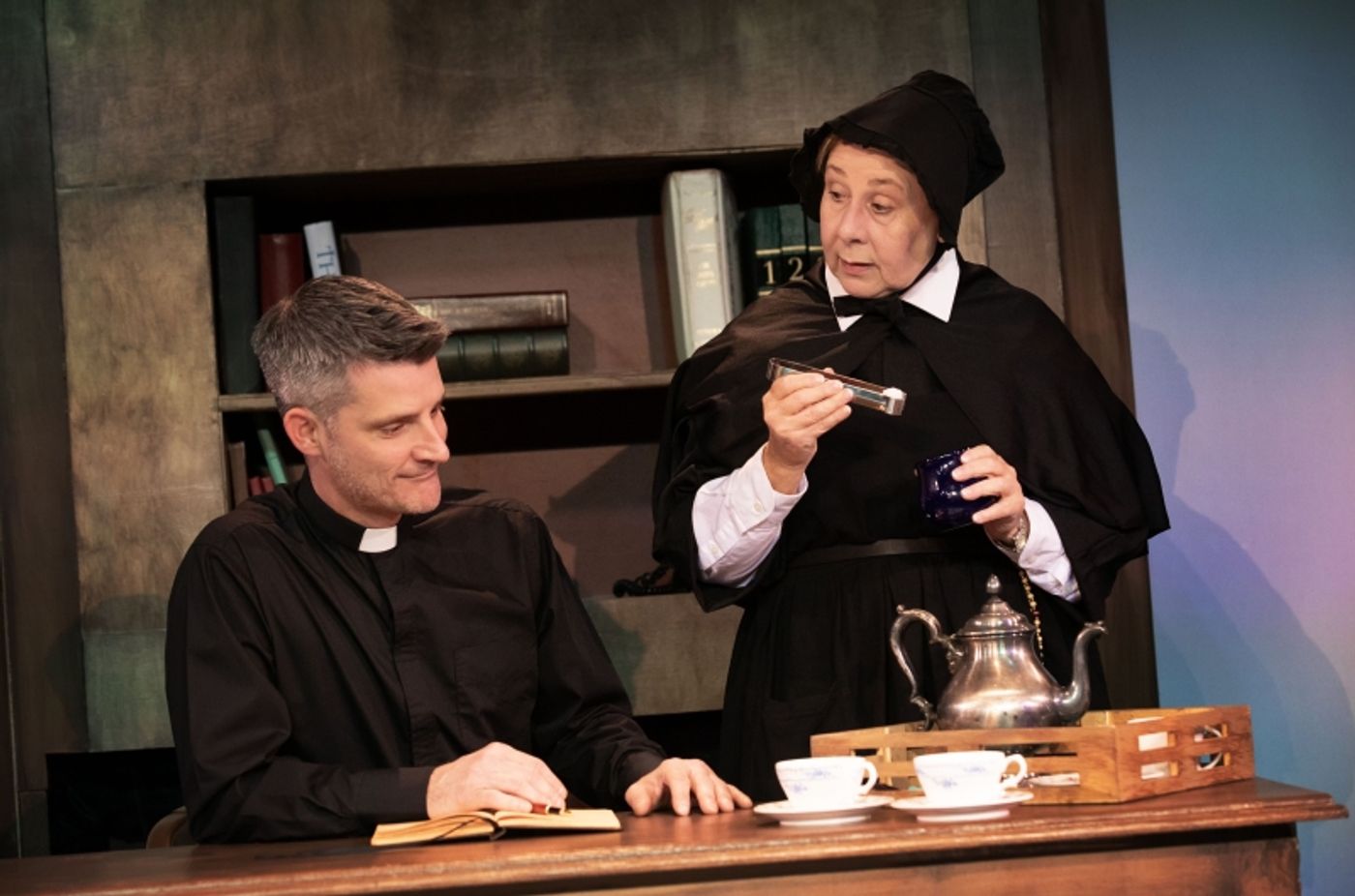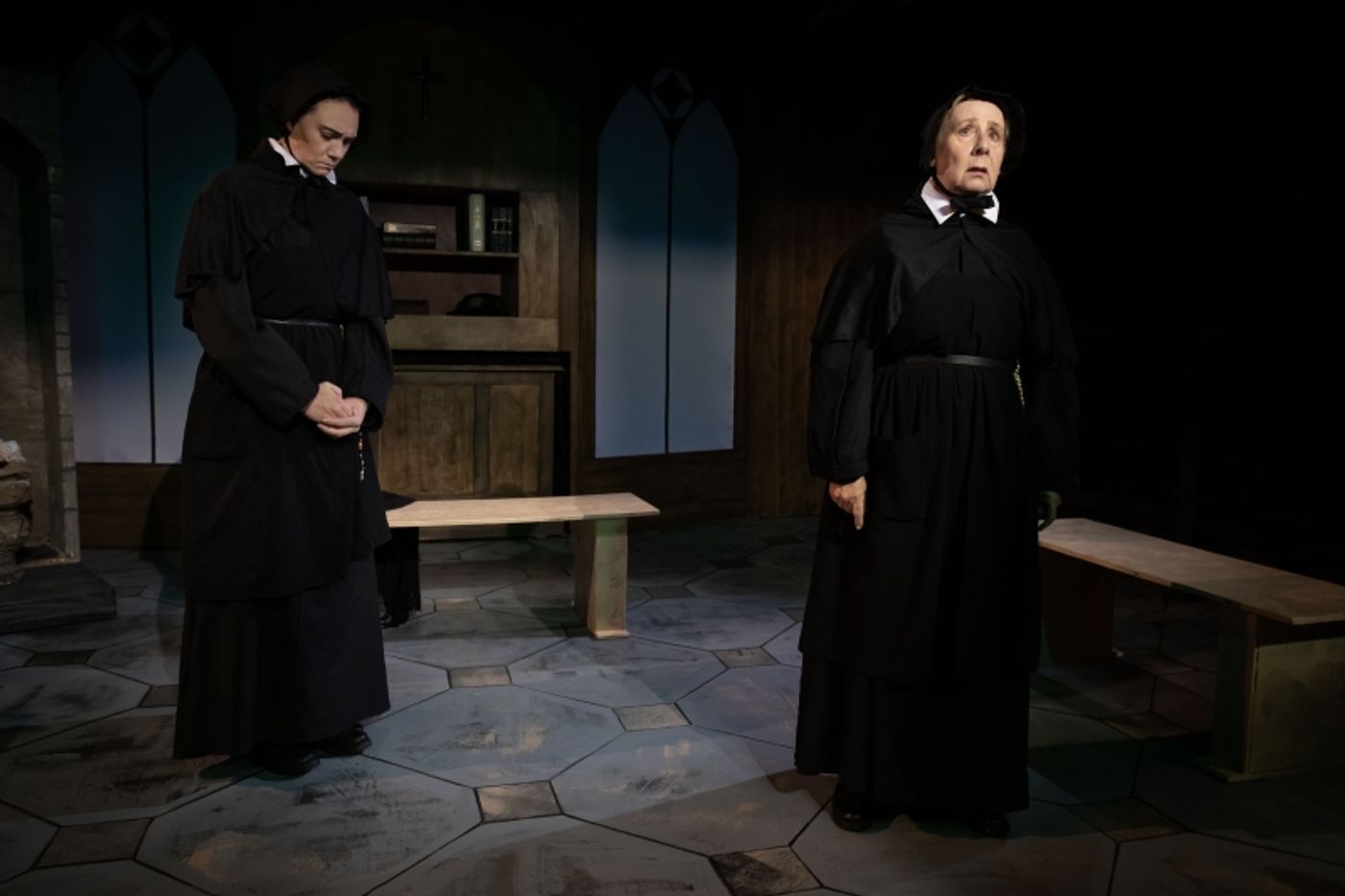Review: DOUBT: A PARABLE at Georgetown Palace - Playhouse Stage
As thought-provoking as theatre can be. Now playing through Jun 2nd, 2024

Doubt: A Parable, written by John Patrick Shanley, is a compelling and thought-provoking play that delves into the complexities of faith, morality, and the elusive nature of truth. Set in a Catholic school in the Bronx during the 1960s, the narrative revolves around the suspicions of Sister Aloysius Beauvier, the strict and conservative principal, regarding a possible inappropriate relationship between Father Flynn, the charismatic parish priest, and the school's only black student, Donald Muller.

in Doubt: A Parable at Georgetown Palace
PC: Georgetown Palace
Georgetown Palace’s production of Doubt, directed by Morgan Urbanovsky, takes on this critically acclaimed work with ambition and skill. Their performance honors Shanley's original text while adding their unique touch. Urbanovsky’s direction sustains a veil of mystery surrounding intention and truth, prompting the audience to contemplate whether Sister Aloysius is indeed trying to unravel the truth or steadfastly adhering to absolutes amidst societal shifts. Father Flynn’s articulate sermons on doubt provoke speculation about his motives: is he authentically compassionate or attempting to deflect responsibility? Shanley abstains from offering an answer, empowering the audience to reach their own conclusions.

in Doubt: A Parable at Georgetown Palace
PC: Georgetown Palace
The characters are richly drawn and complex, embodying different aspects of the broader themes. Trish Avery’s Sister Aloysius is a formidable presence, willing to challenge the church's structure to pursue her conviction of the priest’s guilt. Dax Dobbs’ Father Flynn presents a modern and compassionate approach to his duties, making him a sympathetic yet enigmatic figure. This ambiguity forces audiences to grapple with their own biases and assumptions. Halli Gibson’s Sister James, the young and impressionable teacher caught in the conflict, serves as the audience's surrogate, representing innocence and the struggle to navigate the tension between morality, truth, and doubt.
Having grown up Catholic, each character brought back memories of my own Catholic school days. Sister James reminded me of Sister Margarita, who taught music lessons and balanced traditional education with a modern twist. Sister Aloysius’s sternness and conservative approach mirrored that of my school's principal, Sister Emma. Father Flynn’s charisma and questioning nature reminded me of Father Juan, a young priest who often doubted his own beliefs. As I sat in the theatre on Saturday, I couldn’t stop thinking about how these nuns and priests shaped my views of the Catholic Church and how those personal views influenced my interpretation of the story unfolding in front of me.
One part of the play left me reeling with frustration. Michele Crowder’s portrayal of the boy’s mother, more concerned about his ability to graduate than his well-being in the face of potential abuse, did not soothe my anger at the text. On one hand, I would not have rested until uncovering the truth about the school. On the other hand, I can’t judge her, as I don't know what she could have done as a person of color in the 1960s.This ambiguity is Shanley’s genius, presenting characters that blur the line between truth and belief.
Doubt: A Parable is a powerful exploration of human behavior. The minimalist set design and strategically placed lighting emphasize the rich dialogue and complexity of the text. The atmosphere and intimacy created by the four-person cast invites the audience to reflect on the nature of truth, doubt, and the consequences of spreading rumors. The play's open-ended conclusion poignantly reminds us that doubt can be a profound and necessary part of the human experience.
DOUBT: A PARABLE
Book by John Patrick Shanley
Directed by Morgan Urbanovsky
Georgetown Palace, Playhouse Stage
810 South Austin Avenue
Georgetown, TX 78626
Now playing through June 2nd, 2024
Fridays and Saturdays at 7:30pm
Sundays at 2:00pm
Reader Reviews
Videos

